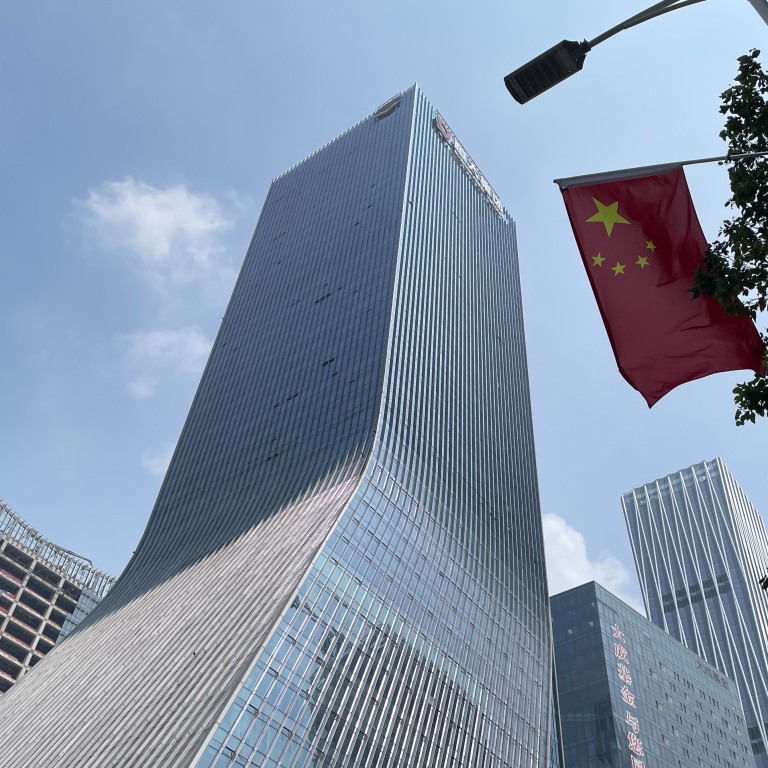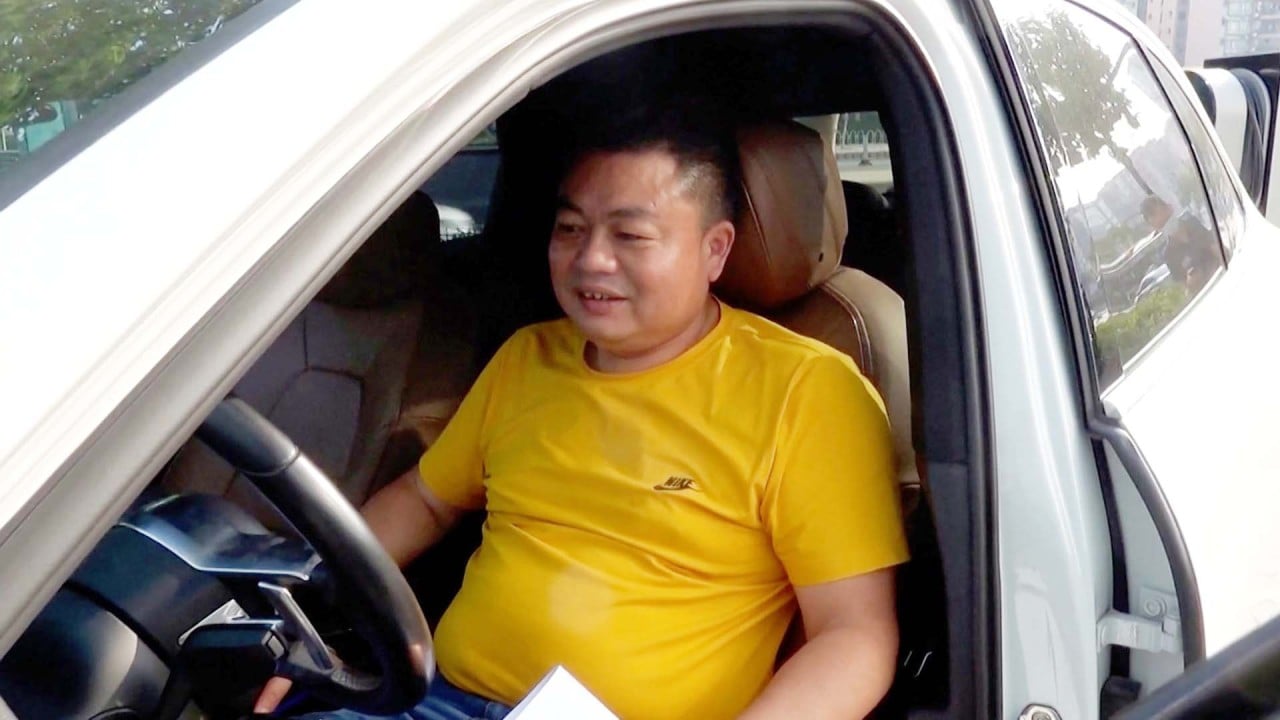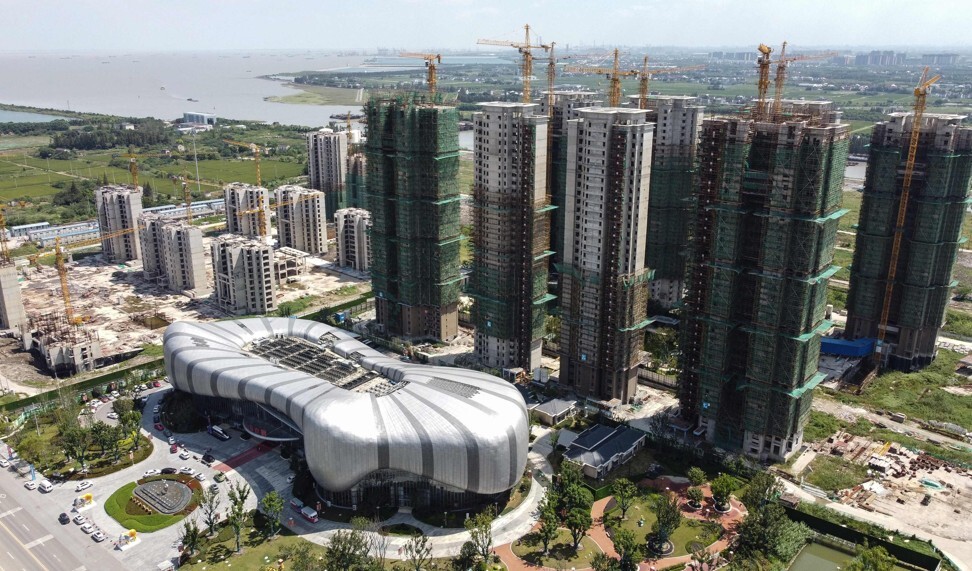
Evergrande: concerns linger even as embattled developer’s Hengda unit makes interest payment on US$327 million onshore bond
- Evergrande’s onshore real estate unit made an interest payment on onshore debt on Tuesday
- Construction, real estate account for nearly half of China’s US$27 trillion in corporate debt, S&P says
However, a payment on its yuan-denominated debt has done little to reassure offshore bond holders – or major credit rating agencies about the Chinese property sector – after the company missed two interest instalments in September and another three coupon payments last week.
“The recent troubles of property group China Evergrande Group have rattled investors. Should Evergrande default, there may be contagion effects for other developers, home prices, and the economy,” S&P Global Ratings analysts Terence Chan and Eunice Tan, said in a research note on Tuesday. “Evergrande’s cash flow troubles foreshadow what could go wrong for liquidity-challenged Chinese corporates.”

02:25
Unpaid by Evergrande, supplier sells car and home to rescue his business
China’s corporate debt topped US$27 trillion, equivalent to 31 per cent of the global total and its debt-to-gross domestic product ratio is markedly higher than the global rate, implying “substantial financial and economic contagion risk”, according to S&P.
Nearly half of that debt sits in the country’s real estate and construction and engineering sectors, the rating agency said.

However, Evergrande has run into difficulty lately in selling some of its assets.
On Tuesday, Redd Intelligence, a bond information portal, reported that Evergrande had suspended negotiations to sell a controlling stake in its Hong Kong-listed property management business to another China-based developer Hopson Development after the deal failed to receive support of the Guangdong government.
Shares of Hopson, Evergrande and the property management business have been suspended in Hong Kong since October 4 in anticipation of an announcement related to a “major transaction”.

“Regarding the suspension of the company’s shares trading, the company does not comment on market rumours or speculation,” Hopson said on Tuesday.
His comments followed a press conference on Friday in which a senior PBOC official said authorities were resolving the Evergrande situation based on “market-oriented and rule-of-law principles” and was unlikely to spread.
“It means that Evergrande is just a single incident, and the central government would only take care of systemic risk and will not save an individual company,” Li Yujia, senior economist with the Real Estate Assessment and Development Research Centre, a research arm of Shenzhen’s government.

Despite reassurances from Beijing, concerns about Evergrande and other developers who have said they would miss payments on their debt in recent weeks have unnerved overseas investors and prompted rating agencies to downgrade a slew of developers in the past few days.
Moody’s Investors Service and Fitch Ratings cut the ratings or credit outlooks for 18 property developers on Monday, including some of China’s top home builders.
For example, Greenland Holdings, the sixth largest developer by sales in China last year, was cut to Ba2 by Moody’s, reflecting its “substantial credit risk”. Guangzhou R&F Properties, Hopson Development and Golden Wheel Tiandi Holdings were cut by Moody’s to Caa1, reflecting “very high credit risk”.
“The downgrades reflect Guangzhou R&F’s weak liquidity and high refinancing risks because of its sizeable debt maturing over the next six-12 months and its weakened access to offshore funding amid tight funding conditions,” said Kaven Tsang, a Moody’s senior vice-president in the rating note of Guangzhou R&F, the 20th biggest developer by sales in China.

The large scale of downgrades means that the era of blind worship of China property has come to an end, analysts said.
“As China is lowering the reliance of property and trying to let the air out of the housing bubble and deleverage, we will see defaults for sure and some developers may go bankrupt,” Li said, adding that overseas investors should re-evaluate the risk of the property sector now.
The spillover from the Evergrande crisis will lead to lower activity in China’s property sector and weaker overall growth in the mainland economy next year, according to research firm TS Lombard.
“Suddenly, after Evergrande, housing investments are likely to appear much less attractive to households owing to stagnating or falling property prices,” Lawrence Brainard, TS Lombard’s chief emerging market economist, said in a research note.


